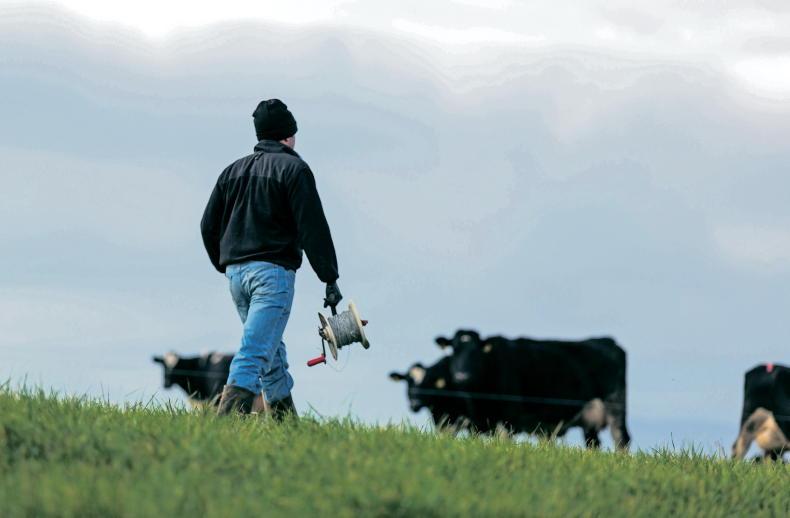Question: My father, a lifelong farmer, wants to gift me a field valued at €120,000. I already own land worth €60,000 and hold the Green Cert. My parents have not given me gifts before. I’d love to keep the land in the family and continue farming, but I’m unsure what taxes might arise.
What reliefs could apply, and how do I make sure everything is filed correctly and on time? I don’t want to overlook anything important.
Answer: It’s great to see land staying in the family. With proper planning, you can likely avoid paying tax altogether – but the process must be handled carefully.
Capital Acquisitions Tax (CAT)
The main concern with receiving a land gift is Capital Acquisitions Tax (CAT). Every child is entitled to receive up to €400,000 tax-free from their parents during their lifetime. That’s the Group A threshold. Since your father’s land is worth €120,000 and you’ve not previously received any other gifts from your parents, you’re comfortably under this threshold meaning no CAT is due straight away.
But even if the gift went above €400,000 or you had received a previous gift, Agricultural Relief may apply, reducing taxable value by 90%, provided you meet the criteria.
Agricultural Relief
To qualify for Agricultural Relief, you must:
1. Receive agricultural property – which includes farmland, sheds, milking parlours, stock, machinery, and certain forestry.
2. Pass the ‘80% test’ – meaning that at least 80% of your assets after receiving the gift must be agricultural assets.
This is where many get caught. Assets like your private house, car, savings, shares, pensions – count as non-agricultural. Importantly, most debts, including mortgages, can’t be deducted when calculating this ratio (except on your private residence).
In your case, you’d own €180,000 in farmland – your own €60,000 and the €120,000 from your father. If that’s all you have, you’re at 100% agricultural assets so you’d pass the test easily.
But be cautious, owning a house worth €200,000 would not qualify. The threshold is tight – you’re only allowed up to €36,000 in non-farm assets if you have €144,000 in agricultural property. That catches a lot of otherwise qualifying farmers out.
3. Farm the land yourself or lease it long-term (for at least six years) to someone who does.
Since you’ve the Green Cert, Revenue won’t ask you to prove that more than 50% of your income or working time comes from farming. So yes, from the facts you’ve given, you should qualify for Agricultural Relief, and that means no CAT.
Capital Gains Tax (CGT)
This tax would be a concern for your father, as gifting land is treated as a disposal for Capital Gains Tax (CGT) purposes. However, Retirement Relief may apply.
If your father is over 55 and has been farming for 10 or more years, and if you plan to continue farming, he can transfer the land without paying CGT. If your father is over 70, a €3 million cap applies, which is still well above the €120,000 value. So again, no tax is likely to arise.
Stamp Duty
Stamp duty, now this is where people often get caught. Even when there’s no CAT or CGT to pay, stamp duty is almost always payable unless claimed for properly.
The standard rate for farmland is 7.5%, so on land worth €120,000, that’s €9,000 due, unless you qualify for relief.
Since you’ve the Green Cert, there are two possible stamp duty reliefs available:
1. Young Trained Farmer Relief: If you’re under 35 at the date of transfer, and hold the Green Cert, and farm the land for at least 5 years, you may claim a 100% exemption from stamp duty. That saves you the full €9,000. This relief must be claimed within 30 days of the deed being signed.
2. Consanguinity Relief: If you’re 35 or older, you won’t qualify as a Young Trained Farmer but you may still get Consanguinity Relief, which reduces the stamp duty by half to 3.75%. Again, you must farm the land for six years and the transfer must be between close relatives.
Both are valuable, but neither is automatic. You need to file the stamp duty return and claim the relief.
Timelines and filing
Even if there’s no tax due, the paperwork still matters:
• Stamp Duty: File and pay (or claim relief) within 44 days of signing the deed.
• CAT Return: Must be filed by 31 October of the following year, or Revenue may disallow Agricultural Relief.
• CGT Return: If needed, it should be filed by your father but Retirement Relief generally avoids any tax here too.
My final advice would be – get the deed reviewed before signing, make sure the values are correct, and don’t forget to file the CAT return and stamp duty claim, even where there’s nothing to pay. With those steps, you should be all set.
Marty Murphy is head of tax at ifac, the professional services firm for farming, food and agribusiness.






 This is a subscriber-only article
This is a subscriber-only article










SHARING OPTIONS: